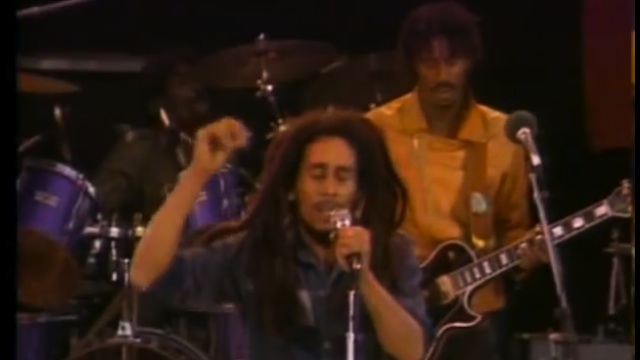“When I live down in the ghetto, every day I have to jump fence, police try and hold me, ya dig? Not for a week – for years! Years, till we have to get free now. It’s either you a bad, bad man and they shoot you down, or you make a move and show people improvement. It doesn’t have to be material, but in freedom of thinking," Bob Marley, the Rastafarian, iconic musician and freedom fighter told New York Professor Vivien Golman in 1979. Vivien Goldman, a former Public Relations for Bob Marley, teaches a course called "Marley and Post-Colonial Music".
Born on a farm in Nine Mile, Robert Nesta "Bob" Marley grewup in the rough neighborhood of Trenchtown, Kinsgton, in Jamaica. That is where he learned about life and that shaped his music. The song "No Woman No Cry" relates to his upbring and growing up in the ghetto, with a hopeful message cheering up a woman, that things will get better, and that she should dry up her tears.
As he told Vivien “We grew up rough, but it’s life. Sometimes you have it hard, sometimes you have it soft. Sometimes it is just problems, you know, problems every day. The youth grow up with questions like, What is life? What is my future? Because everybody a search.”
Bob Marley found solace and needed answers to his life questions in the Rastafarian movement. Perhaps the greatest musical achievement for freedom is his album "Survival". Survival, was a response to those nastalgic colonialists and backward politicians hanging on the vestiges of apartheid and racism. Released in 1979 the album appeared dedicated to African freedom fighters of the time, especially in Zimbabwe, South Africa, Angola, and Mozambique. It was a defiant and politically charged album, with evoking tracks such as "Zimbabwe", "Africa Unite", "Wake Up and Live", and "Survival".
With the Album, Bob Marley openly supported the struggles of Africans. He showed his passion for freedom and African liberation and independence through his songs, music, and concerts. A major turning point was the Amandla Festival in Boston in July 1979 where he showed his strong opposition to Apartheid in South Africa. He also participated, on April 17, 1980 to the celebration of Zimbabwe's Independence Day.
Deeply religious, Bob Marley left us songs such as "Redemption Song" and "Forever Loving Jah." He was a true Rastafarian who lived the way of life as inspired by the Ethiopian-Hebrew spirituality movement, already implanted into Jamaica since the 1930s. But most importantly, he was a freedom fighter at heart, who never forgot the struggles oppressed Africans and other people around the World were going through. He played his part and left an indelible positive mark in the World. Because, as Bob Marley, told the media in 1979: "Every Rastaman lives forever." He passed away in Miami, Florida, USA on May 11, 1981, aged 36 years.
















